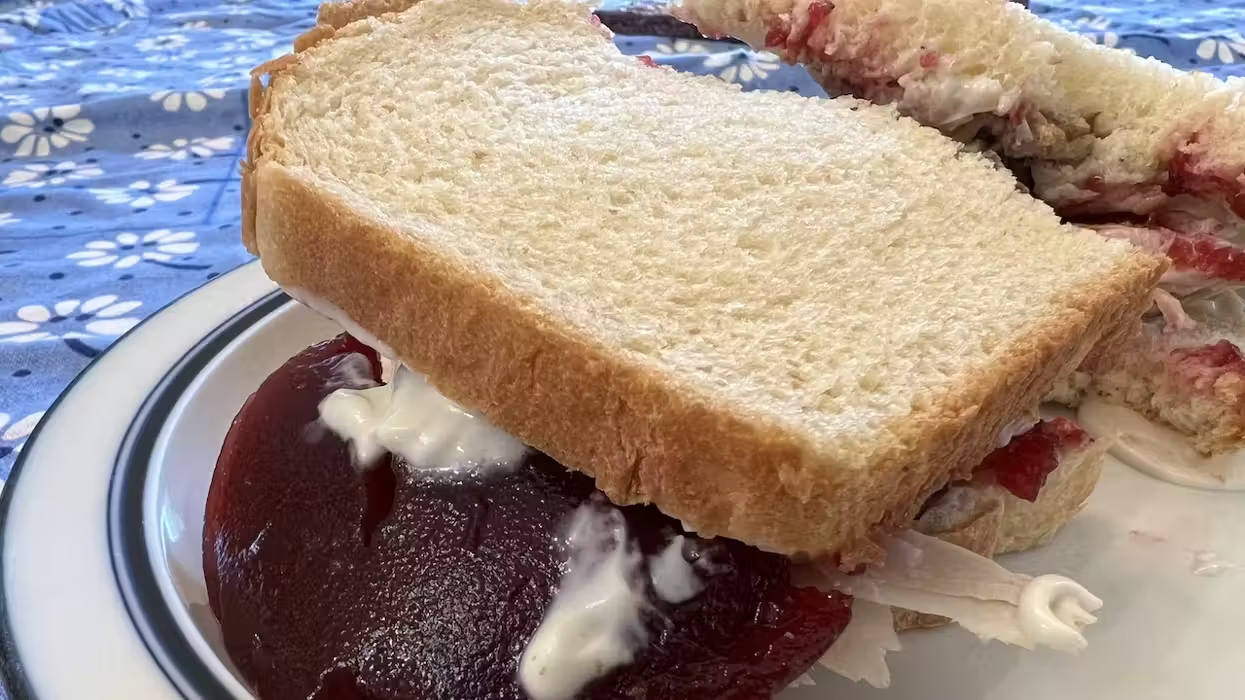
© 2025 Blaze Media LLC. All rights reserved.
Decision "did not recognize the value of a free press at all."
 RICHMOND, Va. (AP) -- A journalist who disclosed details of a secret CIA operation cannot shield his source when he testifies at the trial of a former federal agent charged with leaking classified information, a divided U.S. appeals court ruled Friday.
RICHMOND, Va. (AP) -- A journalist who disclosed details of a secret CIA operation cannot shield his source when he testifies at the trial of a former federal agent charged with leaking classified information, a divided U.S. appeals court ruled Friday.
The 2-1 ruling by a 4th U.S. Circuit Court of Appeals panel reversed a judge's decision limiting the scope of reporter James Risen's testimony at former CIA officer Jeffrey Sterling's trial. The judge had said Risen could be questioned about the accuracy of his journalism but could not be forced to divulge any confidential sources.
That might be OK in a civil trial, the appeals court said, but not in a criminal case.
Risen "can provide the only first-hand account of the commission of a most serious crime indicted by the grand jury - the illegal disclosure of classified, national security information by one who was entrusted by our government to protect national security, but who is charged with having endangered it instead," Judge William B. Traxler Jr. wrote in the majority opinion, which Judge Albert Diaz joined.
Traxler wrote that the only constitutional privilege Risen was entitled to invoke was the Fifth Amendment privilege against self-incrimination, but that he has already been granted immunity for prosecution "for his potential exposure to criminal liability."
The ruling comes amid a debate over how to maintain press freedoms and also keep national secrets safe.
Barry Joel Pollack, an attorney for Sterling, said the dispute involves "a fundamental First Amendment issue" and he would be surprised if Risen did not appeal.
The majority opinion cited a 1972 U.S. Supreme Court ruling that says that as long as a subpoena is issued in good faith, a reporter "must appear and give testimony just as every other citizen must."
The appeals court also rejected Risen's claim that reporters and their sources have a common-law privilege similar to attorney-client or doctor-patient relationships. The protected relationships involve privacy interests, the court said, while Risen's "primary goal is to protect the identity of the person or persons who communicated with him because their communications violated federal, criminal laws."
In a dissenting opinion, Judge Roger L. Gregory wrote that a reporter's ability to protect sources is key to the sort of free press envisioned by the Founding Fathers.
"The majority reads narrowly the law governing the protection of a reporter from revealing his sources, a decision that is, in my view, contrary to the will and wisdom of our Founders," he wrote.
Justice Department spokesman Peter Carr said the department agreed with the court's decision.
"We are examining the next steps in the prosecution of this case," he said.
Risen's lawyer did not immediately return a message left by The Associated Press. The ruling could be appealed to the full appeals court or the U.S. Supreme Court.
"It's a disappointment for the public's right to know what its government agencies are doing," said Lucy Dalglish, the University of Maryland journalism dean and former executive director of the Reporters Committee for Freedom of the Press. She said she was disturbed that the court's majority "did not recognize the value of a free press at all."
Prosecutors allege that Sterling was a key source in Risen's 2006 book "State of War." One chapter in the book details the CIA's botched effort during the Clinton administration to thwart Iran's nuclear ambitions by secretly feeding the Iranians intentionally flawed blueprints through a Russian intermediary.
Risen has refused to speak with government attorneys about his sources, and he didn't testify before the federal grand jury that indicted Sterling in 2010 on charges of unauthorized retention and communication of national defense information, unauthorized conveyance of government property, mail fraud and obstruction of justice.
"They got an indictment without Jim testifying," Dalglish said. "If they got an indictment, why do they need his testimony at trial?"
Another reporter, Judith Miller, spent three months in jail in 2005 for refusing to testify before a grand jury investigating the disclosure of CIA operative Valerie Plume's identity. Earlier this year, the government secretly subpoenaed records of 21 telephone lines used by AP journalists as part of its investigation into who leaked information for a 2012 story about a foiled plot in Yemen to bomb a U.S.-bound airliner. The government also secretly used a warrant to obtain the emails of a Fox News reporter.
After widespread criticism from lawmakers, news organizations and civil liberties advocates, the Justice Department earlier this week tightened its policies for issuing subpoenas to journalists. Dalglish said those changes don't mean the government won't continue to try to compel Risen's testimony in the Sterling case.
A group of senators is pressing for a reporter shield bill that would incorporate the new Justice guidelines.
Traxler wrote that while the government could use hearsay testimony and introduce phone records and emails as evidence, those forms of circumstantial evidence are a poor substitute for testimony from a witness believed to have firsthand knowledge of the offenses.
In the Sterling case, the appeals court also reversed U.S. District Judge Leonie Brinkema's decision to strike two prosecution witnesses as a sanction for violating a discovery order, saying a continuance would have been a more appropriate remedy. Dalglish said that issue also is crucial to the government's case.
"As far as I'm concerned the Justice Department was just given a gift today," she said.
On another issue, the court ruled that the government must provide Sterling the full names of covert CIA operatives who will testify under pseudonyms. However, the court said the identities can be withheld from the jury.
–
[related]
Want to leave a tip?
We answer to you. Help keep our content free of advertisers and big tech censorship by leaving a tip today.
Want to join the conversation?
Already a subscriber?
more stories
Sign up for the Blaze newsletter
By signing up, you agree to our Privacy Policy and Terms of Use, and agree to receive content that may sometimes include advertisements. You may opt out at any time.
Related Content
© 2025 Blaze Media LLC. All rights reserved.
Get the stories that matter most delivered directly to your inbox.
By signing up, you agree to our Privacy Policy and Terms of Use, and agree to receive content that may sometimes include advertisements. You may opt out at any time.





